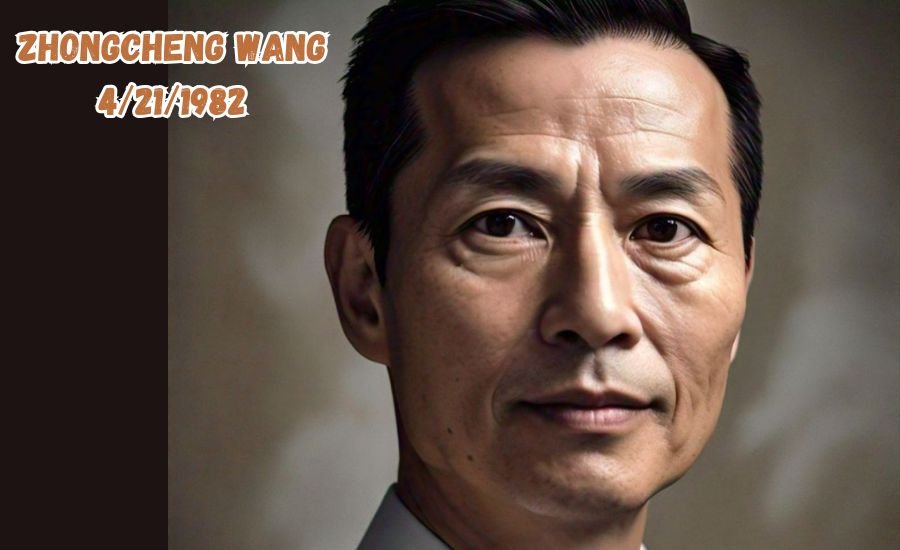Welcome to TECH DENSER! Today, we are diving into the inspiring journey of Zhongcheng Wang 4/21/1982. His groundbreaking work in artificial intelligence (AI) focuses on making AI systems safer and more reliable. As we become increasingly reliant on technology in our daily lives, understanding how to ensure that AI behaves predictably and responsibly is crucial. Wang’s contributions are pivotal for the future of AI, impacting various industries, from healthcare to transportation. Join us as we explore his life, career, and the profound influence he has on the world of AI.
Early Life and Education of Zhongcheng Wang
Zhongcheng Wang 4/21/1982 was born in a small town in New Jersey. His family nurtured a love for learning and curiosity about the world around him. Even as a child, he was fascinated by technology. Wang would often take apart his toys and household gadgets to understand how they worked, a hobby that sparked his interest in computers and mathematics.
His teachers recognized his talent early on and encouraged him to pursue a career in technology. This support played a vital role in shaping his academic path. Wang’s hard work and determination paid off when he received a scholarship to attend the prestigious Massachusetts Institute of Technology (MIT).
At MIT, Wang pursued a Bachelor’s degree in Computer Science, followed by a Master’s degree. His years at MIT were transformative. He immersed himself in studies related to machine learning and artificial intelligence, eager to understand how computers could learn from data and make decisions. This foundational knowledge set the stage for his future work in AI safety and reliability.
The Professional Journey of Zhongcheng Wang 4/21/1982

After graduating from MIT in 2004, Wang embarked on his professional career at a tech startup in Silicon Valley. The fast-paced environment of the startup world was a significant shift for him, but it provided an excellent platform to apply his skills. Wang quickly became known for his expertise in developing predictive models and algorithms that could analyze vast amounts of data.
His team focused on projects in finance and healthcare, where they utilized AI to enhance decision-making processes. Wang’s ability to create complex algorithms that could process information accurately made him an invaluable asset to his company. Through his work, he helped financial institutions predict market trends and healthcare providers improve diagnostic accuracy.
In 2010, Wang transitioned to academia by accepting a position at Princeton University. He was excited to explore the academic side of AI, focusing on research related to AI safety and unpredictability. This field was gaining traction as the implications of AI technology began to surface. Wang aimed to understand the underlying reasons for AI’s erratic behavior and how to mitigate risks associated with its deployment in real-world scenarios.
Key Contributions and Innovations of Zhongcheng Wang 4/21/1982
One of Wang’s most significant achievements is the creation of the “Stability Framework for Neural Networks” in 2015. This innovative framework introduced a systematic approach to evaluate and enhance the reliability of AI systems before they are deployed in critical applications. Wang’s work emphasizes the importance of developing AI that can perform consistently, even in unpredictable environments.
His Stability Framework has garnered attention from numerous research groups and tech companies eager to improve the safety protocols of their AI systems. Organizations across various sectors have adopted his principles to enhance the robustness of their AI applications. This framework serves as a foundation for safer AI technologies, particularly in industries where errors can lead to dire consequences.
In 2017, Wang established the AI Safety Lab at Princeton University. The lab serves as a collaborative space for researchers from various disciplines to tackle the challenges associated with AI safety. Under Wang’s leadership, the lab focuses on simulating diverse environments and scenarios to test AI systems thoroughly. By identifying potential pitfalls, researchers can enhance the overall reliability of AI models.
Bridging Theory and Practice: Wang’s Approach to AI Safety
Zhongcheng Wang 4/21/1982 research extends beyond theoretical frameworks; it also emphasizes practical applications that can significantly impact the deployment of AI technologies. One of his notable projects involved collaborating with automotive companies to integrate his Stability Framework into self-driving car systems. This partnership has resulted in substantial improvements in the vehicles’ decision-making processes.
By applying Wang’s principles, self-driving cars can make better-informed decisions on the road. This development is crucial in reducing accidents caused by AI misjudgments, particularly in unpredictable driving conditions. Wang’s work exemplifies how theoretical research can lead to tangible safety enhancements in high-stakes industries.
Moreover, Wang’s collaborative approach encourages interdisciplinary partnerships that can address the complex challenges of AI safety. By bringing together experts from fields such as psychology, ethics, and computer science, he fosters a deeper understanding of the societal implications of AI technologies. This collaborative effort aims to ensure that AI is developed and deployed responsibly.
Fostering a Collaborative Research Environment at the AI Safety Lab
The AI Safety Lab, founded by Zhongcheng Wang 4/21/1982, is a hub of interdisciplinary collaboration. Researchers from various backgrounds come together to address the multifaceted challenges posed by AI technologies. The lab promotes an environment where innovative ideas can flourish, resulting in meaningful advancements in AI safety research.
Under Wang’s guidance, the lab hosts regular workshops and symposiums to foster a community dedicated to advancing AI safety on a global scale. These events provide opportunities for researchers to share their findings, collaborate on projects, and discuss the ethical considerations surrounding AI deployment. By promoting an open exchange of ideas, the lab encourages innovative solutions to the pressing issues posed by AI technologies.
Wang’s commitment to fostering a collaborative research environment also extends to mentoring young researchers. He is passionate about nurturing the next generation of AI professionals and ensuring they understand the ethical implications of their work. By guiding students and early-career researchers, Wang is helping to shape a future workforce that prioritizes responsible AI development.
I Hope You Appreciate This: Rholdeen Hicks Henderson
Visionary Leadership and Mentorship of Zhongcheng Wang 4/21/1982

In addition to his research contributions, Zhongcheng Wang 4/21/1982 is a dedicated mentor to aspiring AI researchers. His classes emphasize the importance of ethical AI development and responsible decision-making in technology.
Wang believes that understanding the ethical dimensions of AI is crucial for anyone working in the field. He encourages his students to think critically about the potential consequences of their work and to prioritize safety and reliability in AI design. Many of his students have gone on to make significant contributions to AI safety, thanks to his guidance and mentorship.
Beyond the classroom, Zhongcheng Wang 4/21/1982 offers internships and collaborative research opportunities for students. These experiences provide hands-on training and exposure to real-world challenges in AI development. Wang’s commitment to mentorship ensures that young scientists are well-prepared to address the complex issues surrounding AI technologies.
Impact and Future Directions of Zhongcheng Wang 4/21/1982
Zhongcheng Wang 4/21/1982 work has far-reaching implications for AI applications in everyday technology. His efforts to enhance AI stability and safety are crucial as autonomous systems continue to integrate into various industries. As technology evolves, the importance of Wang’s research will only grow, particularly in discussions about ethical AI use.
Looking ahead, Zhongcheng Wang 4/21/1982 aims to expand his research to cover more complex AI systems. He plans to explore decision-making processes in sectors such as government and finance, where AI’s impact is becoming increasingly significant. By tackling these challenges, he hopes to contribute to a future where AI technologies are not only effective but also safe and beneficial for everyone.
Wang’s future research will likely involve collaborations with various stakeholders, including policymakers and industry leaders. By engaging with these groups, he can ensure that his research addresses real-world needs and contributes to the responsible development of AI technologies. His vision includes a world where AI serves humanity without compromising safety or ethical standards.
Conclusion
Zhongcheng Wang 4/21/1982 journey from a curious child in New Jersey to a leading AI researcher exemplifies his dedication to solving some of the most significant challenges in the modern world. His commitment to ensuring AI safety and reliability has made him a vital figure in the field of artificial intelligence.
As we move forward, the importance of his contributions cannot be overstated. Zhongcheng Wang 4/21/1982 work not only advances the field of AI but also ensures that these technologies are safe and reliable for future generations. His pioneering spirit and innovative approach will continue to shape the landscape of AI in the years to come, inspiring others to prioritize safety and ethical considerations in their technological pursuits.
FAQs
Q: What is Zhongcheng Wang known for?
A: Zhongcheng Wang 4/21/1982 is known for his groundbreaking work in AI stability and safety, particularly his development of the Stability Framework for Neural Networks.
Q: Where did Zhongcheng Wang 4/21/1982 study?
A: Wang studied at the Massachusetts Institute of Technology (MIT), where he earned both his Bachelor’s and Master’s degrees in Computer Science.
Q: What is the AI Safety Lab?
A: The AI Safety Lab, founded by Wang, is a collaborative research center at Princeton University focusing on improving AI reliability and safety.
Q: How does Wang contribute to AI safety?
A: Wang develops frameworks and conducts research to ensure AI systems behave reliably and safely, helping to mitigate risks associated with AI technologies.
Q: What are Wang’s future research plans?
A: Wang plans to expand his research to cover more complex AI systems, including those involved in decision-making processes in government and finance.
Stay in touch to get more updates on TECH DENSER




